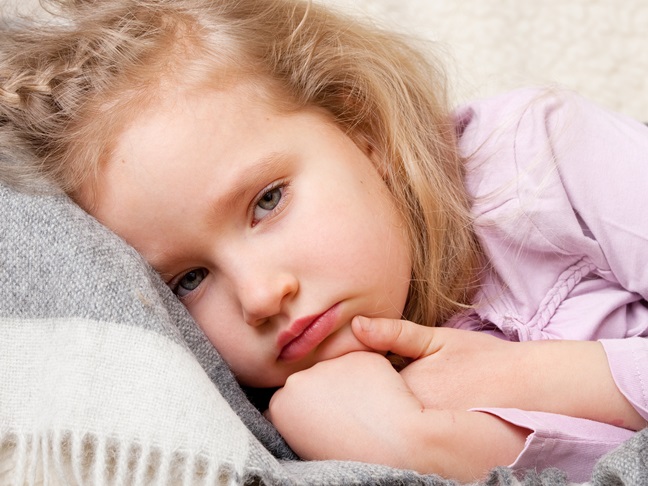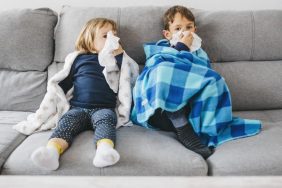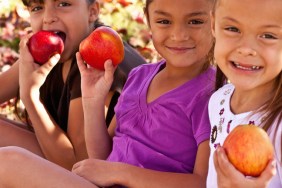Is your little one in bed with the sniffles? You want to feed him foods that are going to help relive his symptoms and provide the nutrients he needs to get better, but just as important: you want to avoid foods that will contribute to discomfort and prolonged illness. We checked in with the experts who told us to stay away from these foods when sick:
*This post was sponsored by Triaminic.
Worst Foods for a Cold
-
Fast Food

Processed fare unlike whole foods is often lacking nutrients and is full of sugar, salt, and fat. While a trip through a drive-thru window might be tempting on the ride back from the doctor’s office when your kid is still crying from the visit, bypass that fast food joint. “I always talk about how food has the power to heal. Vitamins and minerals are needed for energy reactions in our body, growth and development, immunity, and processing red blood cells,” says registered dietitian and nutritionist Angela Lemond, RDN, who is a spokesperson for the Academy of Nutrition and Dietetics. “Nutrient-rich foods will have the biggest impact. And high-sugar foods typically have least nutrients.”
-
Raw Vegetables
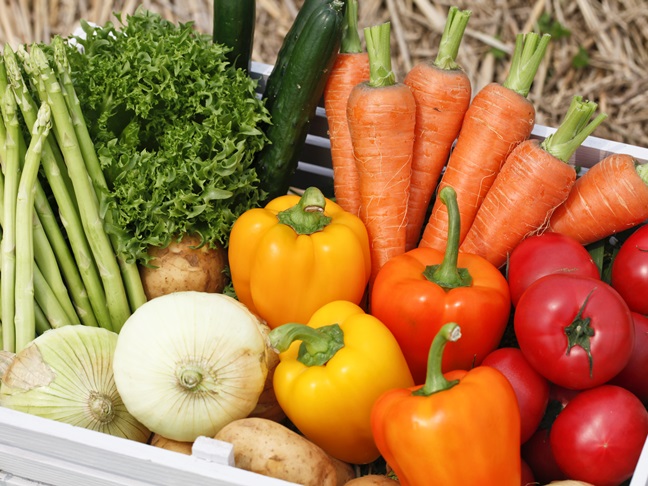
Mucus production from a cold can drain into a child’s stomach and cause irritation. “High-fiber foods can upset an irritated stomach,” adds Lemond, so when they have a cold, give kids cooked and tender veggies, which can be more easily digested.
-
Tomato Soup
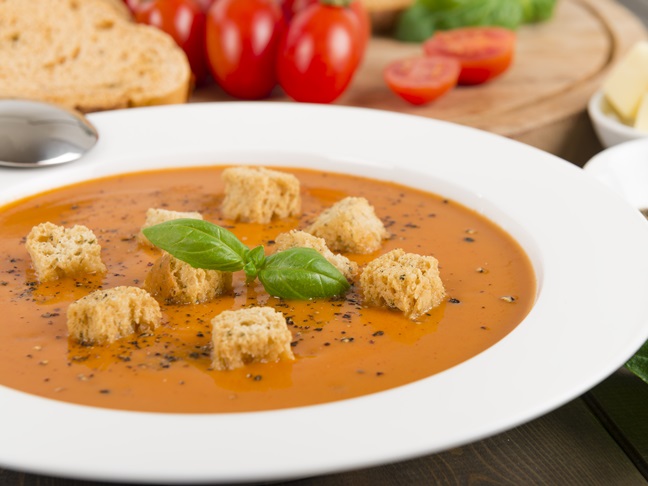
It’s high in sugar, is acidic, and can aggravate the stomach, says Lemond. Make a different soup instead like chicken soup when your child has a cold.
-
Spicy Foods
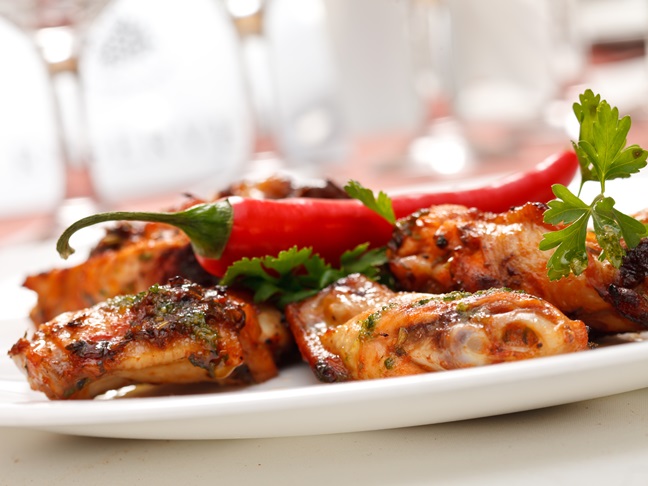
Spicy foods can help with draining the mucus that forms during a cold, says Lemond, but spicy foods can also irritate the stomach for some people, so if that’s the case, don’t add heat to food when someone is under the weather.
-
Soda

Kids shouldn’t be drinking soda even when they’re feeling well, because it’s full of nutrient-poor calories, and if they’re drinking soda, it’s displacing healthier fluids, such as water, which children should drink regularly on a daily basis. Plus, kids have a faster respiratory rate than adults, so they can dehydrate faster, and if they have a fever, they need extra healthy fluids.
-
Energy Drinks

They’re popular with teens, but they contain a lot of sugar and some of these drinks have a crazy amount of caffeine, and it can compromise them, by producing more acid that can cause stomach irritation, says Lemond, not to mention the adverse effects that are associated with too much caffeine consumption.
-
Chocolate

Fatty and sugary foods can bother the stomach, explains Lemond, so even if you occasionally allow your child to nibble on a little chocolate from time to time, when he’s sick, keep it out of sight when he has the sniffles.
-
Ice Cream

Your child might want something refreshing for a sore throat, but for the same reason chocolate is off limits, this frozen dessert is a no-no too. Instead, make your own cool and nutrient-filled treat by making a fruit-filled smoothie, pouring it into fun molds and freezing it for homemade popsicles.
